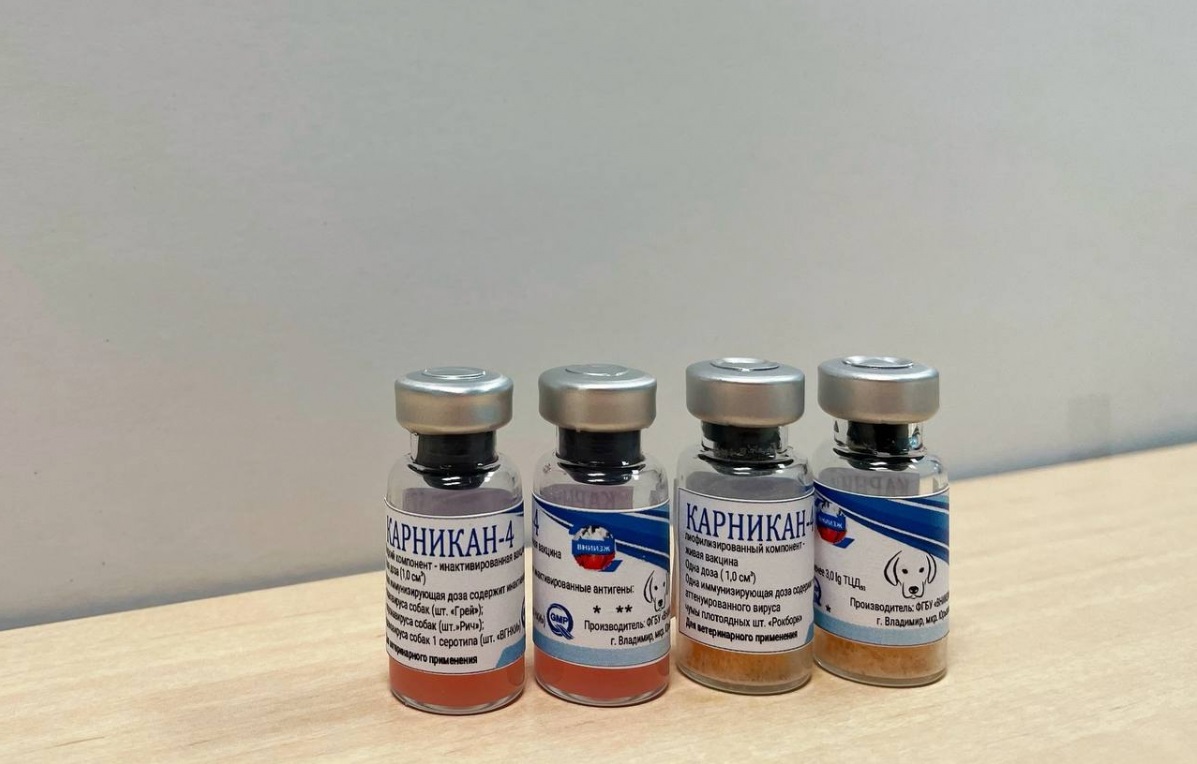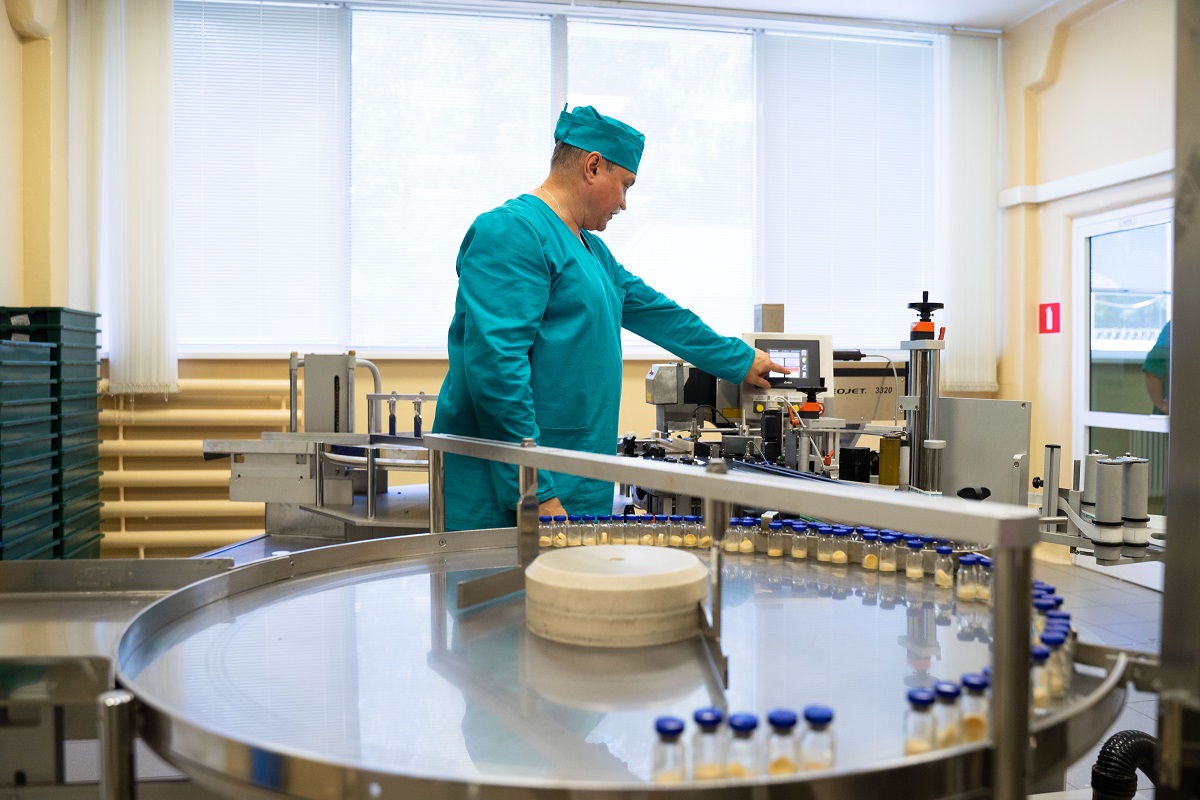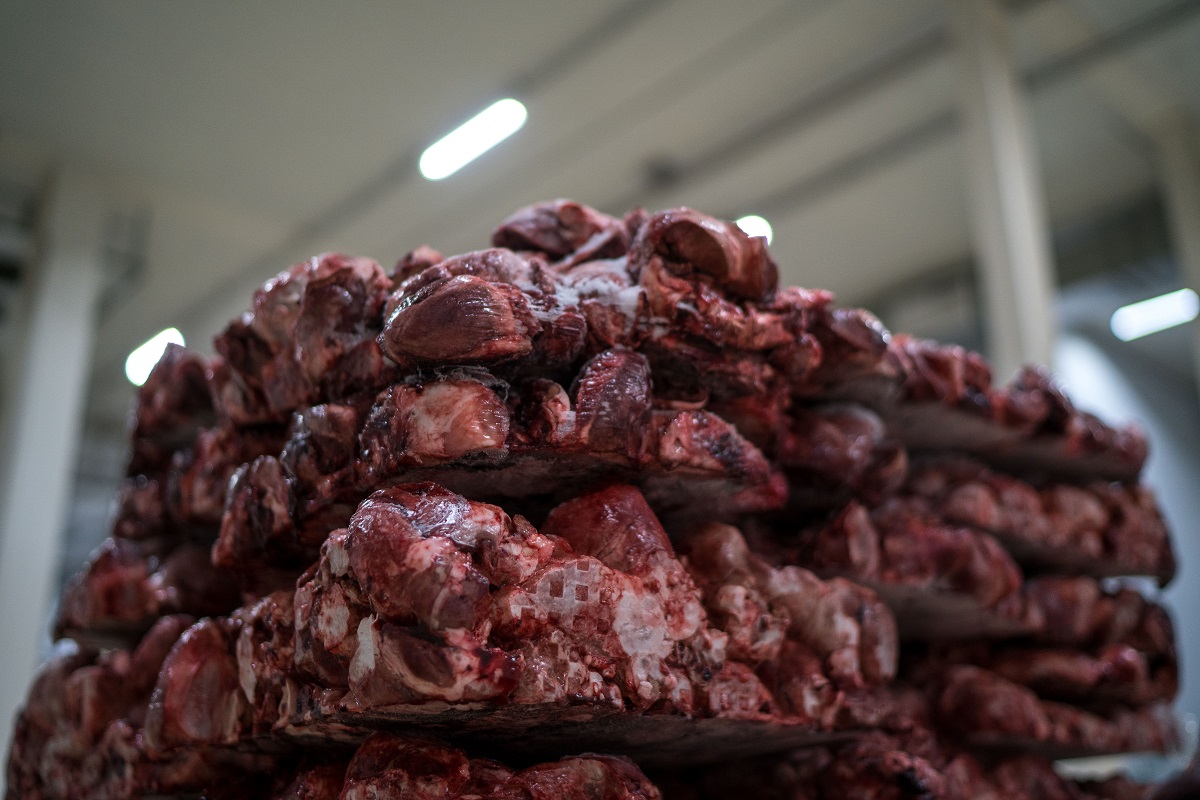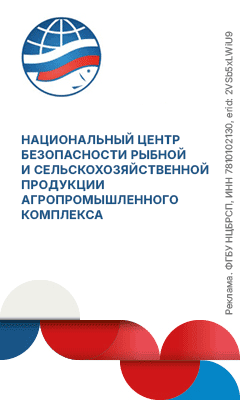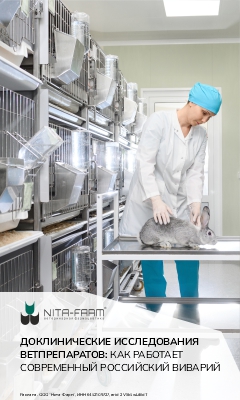The vaccine is intended for the prevention of viral diseases in dogs, such as canine distemper, parvovirus and coronavirus enteritis, and adenovirus type 1 infections.
According to the experts, Karnikan 4’s two-vial presentation consists of two components (lyophilized and liquid) that are mixed immediately before administration.
The lyophilized component (live vaccine) is a lyophilisate for injectable suspension produced from a culture suspension of a continuous VERO cell line infected with an attenuated canine distemper virus (Rockborn strain).
The liquid component (inactivated vaccine) is an injectable suspension produced from a culture suspension of continuous Fs, CrFk, and MDCK cell lines infected with canine parvovirus enteritis viruses (Gray strain), canine coronavirus enteritis (Rich strain), and canine adenovirus infection (VGNKI strain type 1).
Scientists explained that immunity develops in dogs 14 days after the second injection. The effect remains for at least 12 months.
The new vaccine can be administered to puppies starting at 8-10 weeks of age, twice at a 21-day interval. Deworming is recommended 10 days prior to the first vaccination. Revaccination is advised once a year with a single dose of the vaccine. Previously unvaccinated adult dogs are advised to be vaccinated twice at a 21-day interval.
Reminder: Scientists at ARRIAH are currently working on two pet vaccines that are going to be submitted for approval this year. These include Karnikan-5, aimed at protecting pets from canine distemper, parvovirus and coronavirus enteritis, adenovirus infections, and rabies. Another vaccine is being developed for cats under the name “Carnifel”. It will be effective against panleukopenia, calicivirus, and viral rhinotracheitis in cats.



